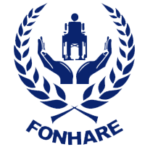Know More
About Us
Let's act to leave no one behind
This is the slogan that directs, nourishes and drives FONHARE’s actions in the communities.
Our main objective is to make multidisciplinary, specialized and quality rehabilitation services available and accessible to disabled people and vulnerable people suffering from functional limitations linked to pain or trauma, in particular women and girls throughout the national territory.
But we also focus our efforts towards a more just, inclusive and resilient society with the participation of everyone. This is why, in addition to the rehabilitation services, FONHARE has developed programs for: Inclusive Humanitarian Response; Inclusion, Universal Accessibility and Economic Empowerment; Inclusive Risk and Disaster Management; Child Protection and Vulnerable Women.
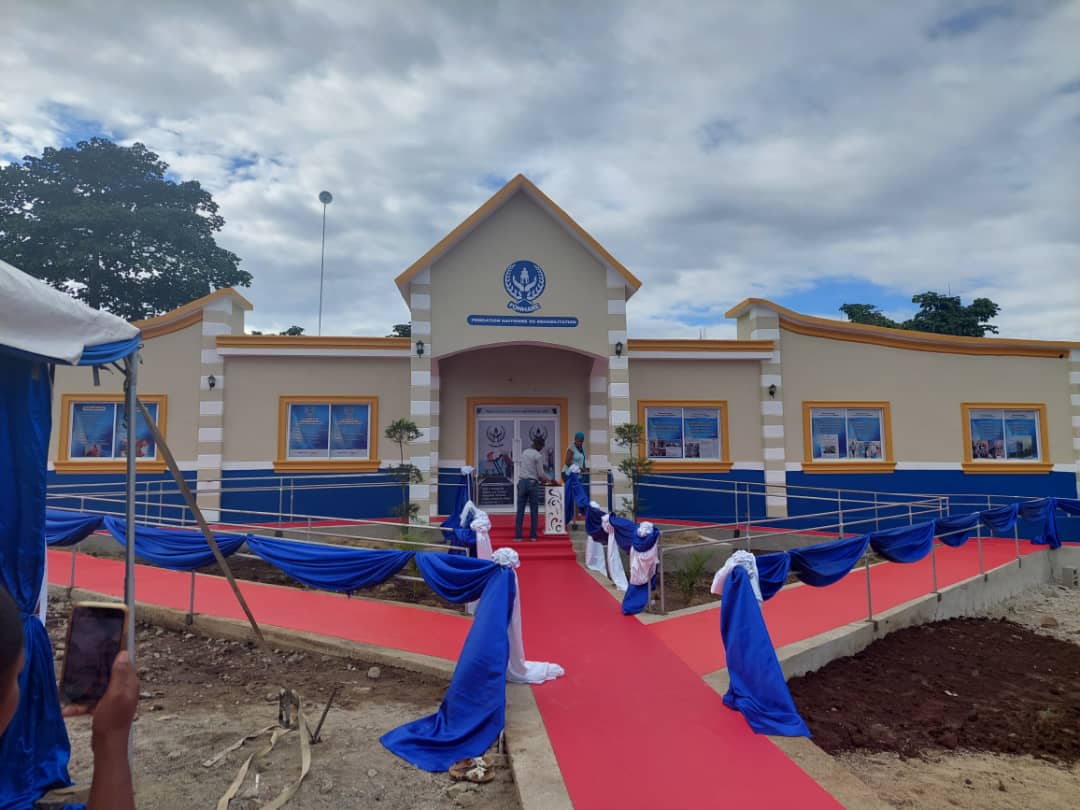
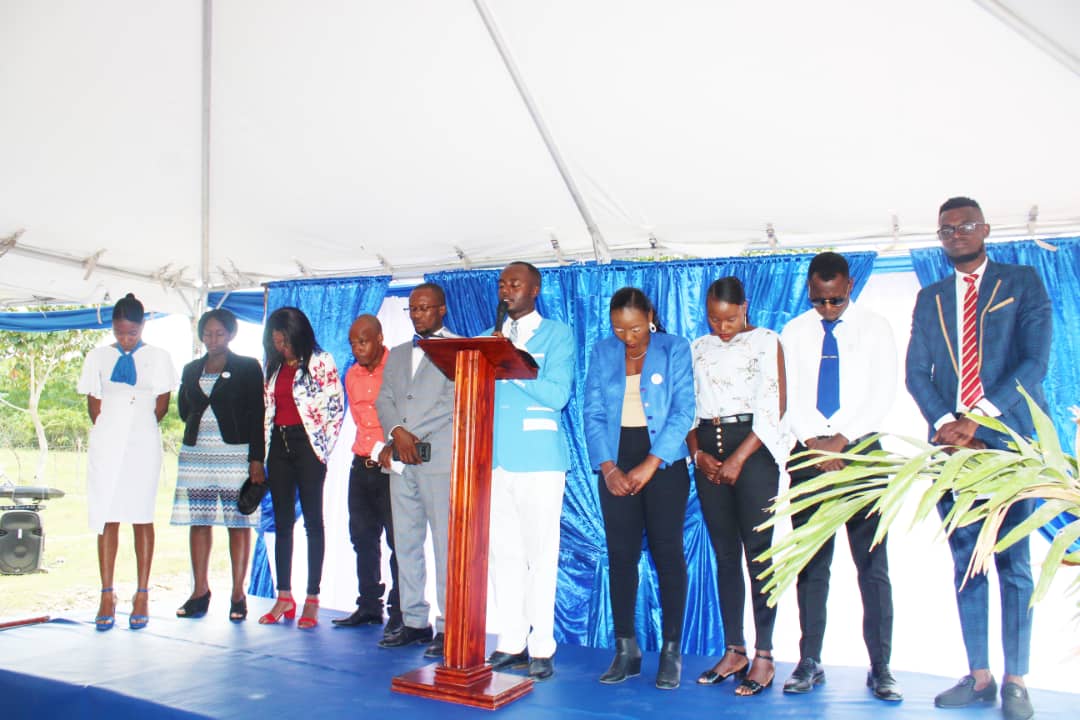
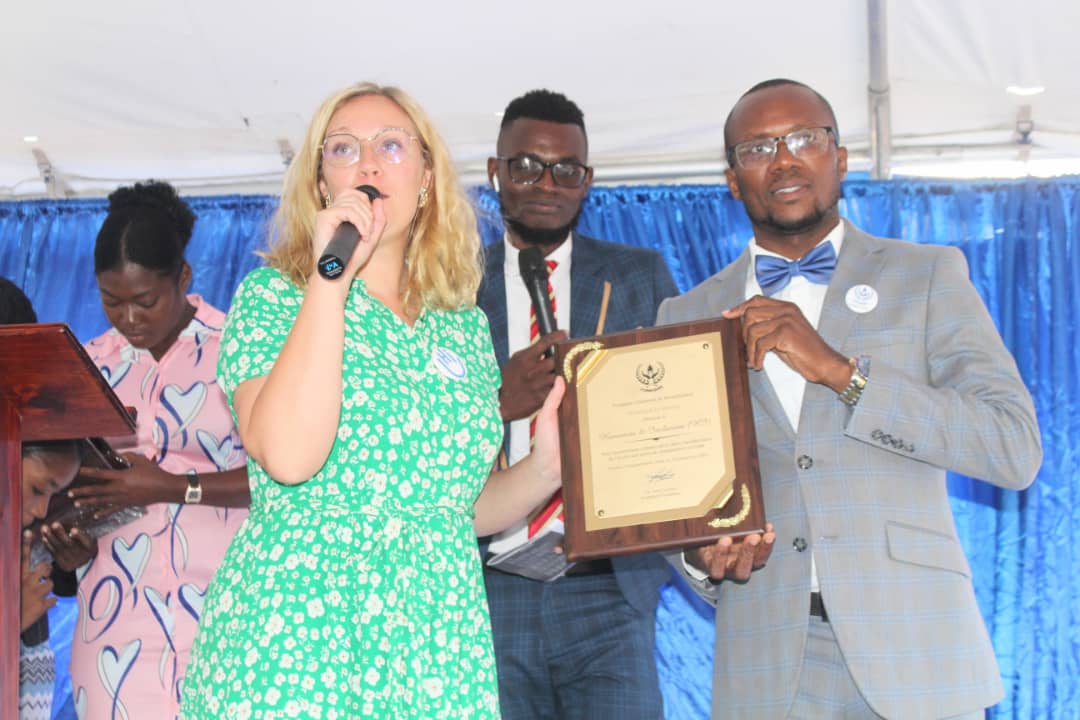
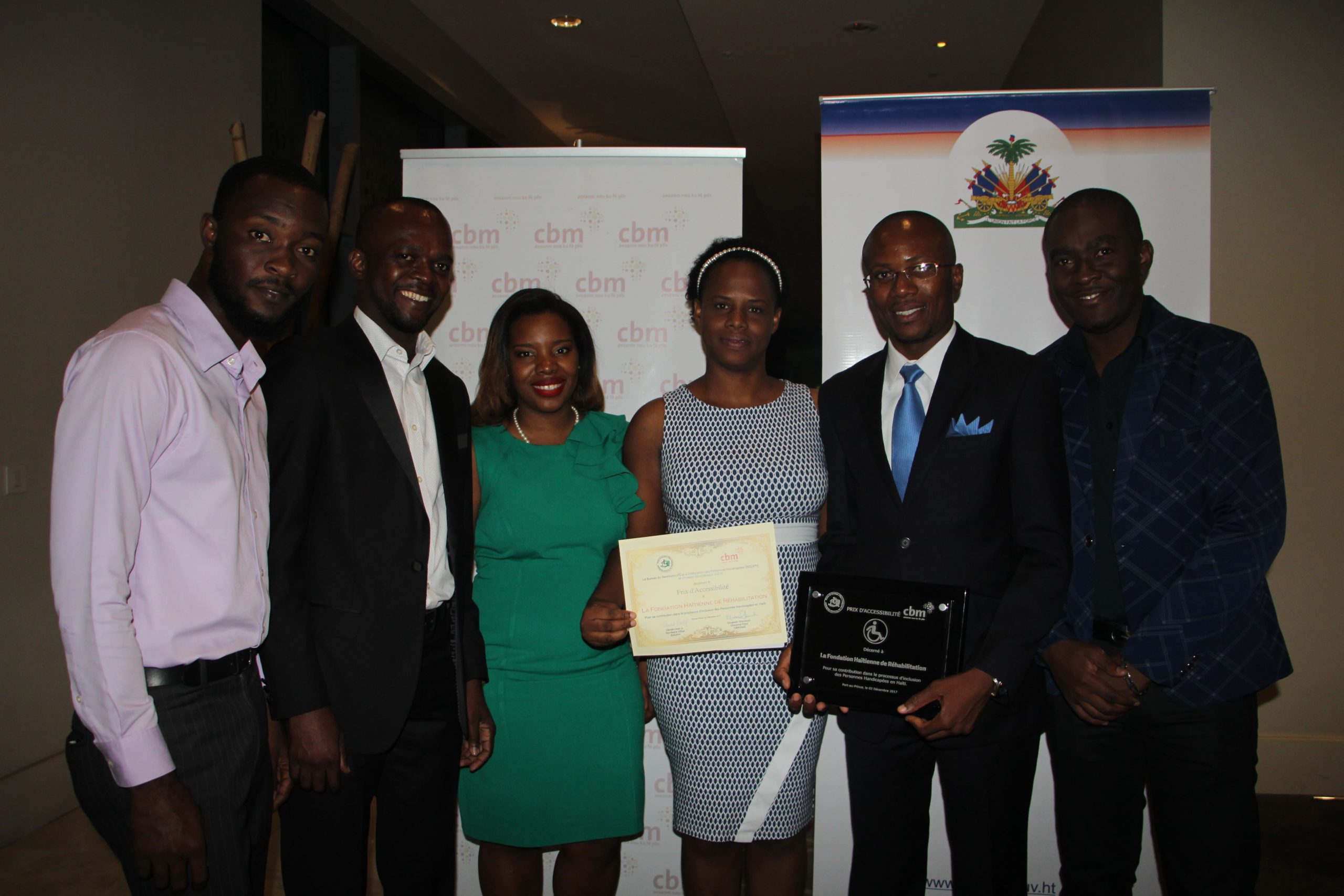
Departmental coverage
In fact, the Haitian Rehabilitation Foundation (FONHARE) works in the 14 communes of the northeast
department and 3 communes of the northern department, namely (Limonade, Cap-Haitien and Plaine-
du-Nord). But as for health rehabilitation services, we receive patients from other departments, mainly
from the northern and central departments, looking
for quality services to improve their functional
condition through an inclusive approach.
Projection towards National Coverage
Our future project is to bring this same standard of
quality of care throughout the country by installing a reference multidisciplinary rehabilitation center in the 10 departments of Haiti.
Inclusion at the Heart of our Actions
“We are different but equal in law and before God”
According to Dr. Ivens LOUIUS, founder of FONHARE, “Human diversity is not a choice but it is a natural
imposition, we must learn to live together although we are deferential”. DR. LOUIUS continues to say,
“to achieve inclusion we must necessarily go through the acceptance of human diversity”. Human
diversity is not only the set of people who differ from each other by their geographical, socio-cultural or
religious origin, their age, their gender, their sexual orientation. But also by their physical appearance,
their physical and cognitive-intellectual capacity or limitation.
Younger people must come to this acceptance. Indeed, to induce the harmony of human diversity towards inclusion, FONHARE carries out awareness campaigns in schools, peaceful marches, football matches between teams of people with disabilities and those of people without disabilities, as well as other recreational activities to highlight the know-how of people with disabilities and raise awareness of everyone’s commitment to an
inclusive society where people with disabilities have
the same rights and opportunities as others.
FONHARE has demonstrated an approach to
humanitarian action that prioritises the agency of
the most vulnerable. Whilst their focus is on
persons with disabilities, this approach can be
generalised as a route to not only addressing the
consequences of vulnerability but also its causes,
through driving change that increases solidarity and
support from the broader community as well as
individual resilience.
As such, inclusive humanitarian response contains within it a profound perspective on preparedness, recognising that vulnerability to natural disaster is a direct result of existing economic and social relations that can be challenged.

Dr Ivens explains: “If I come and I just bring food and urgent items, I will just relieve their hunger for a short time, but they are not prepared to overcome the next hurricane […] One must prepare them economically, so that their house will be stronger, and they will have more personal funding to overcome and be prepared for the next disaster.”
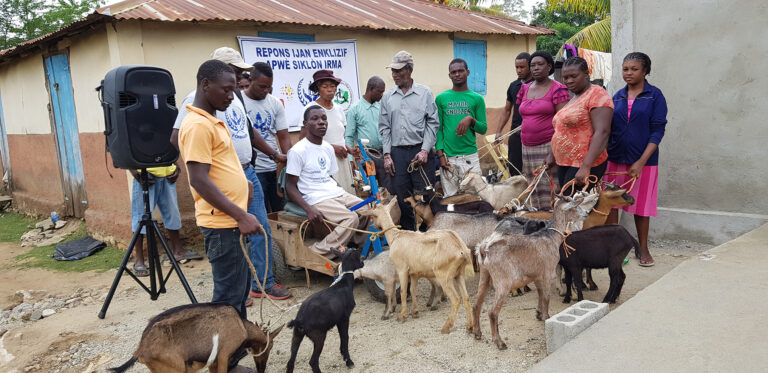
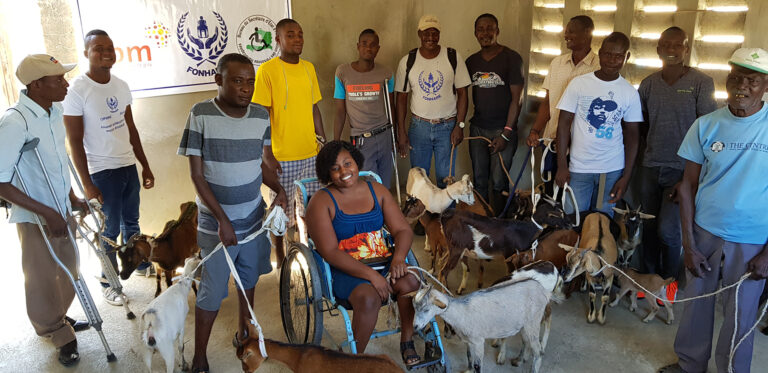
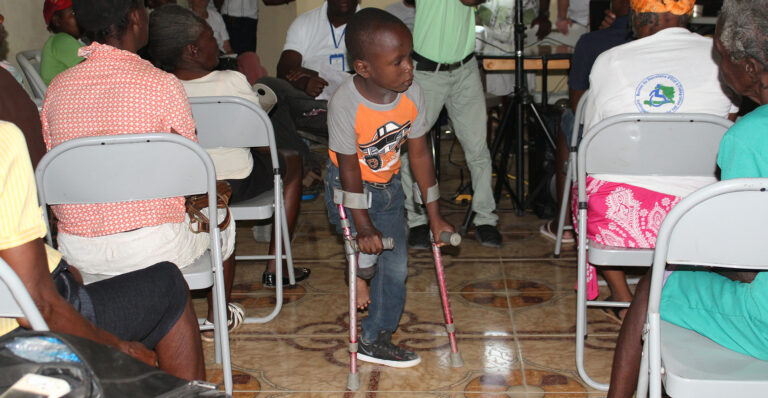
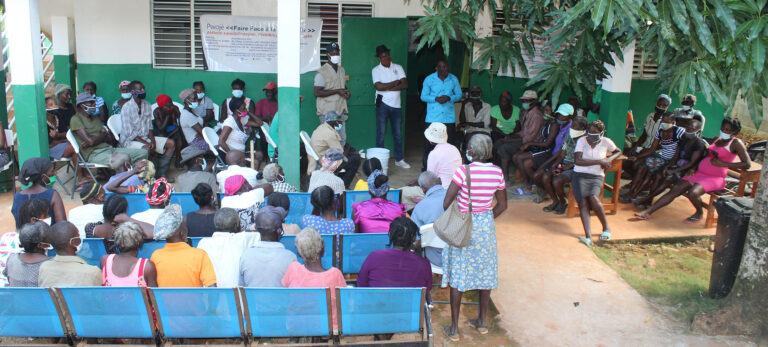
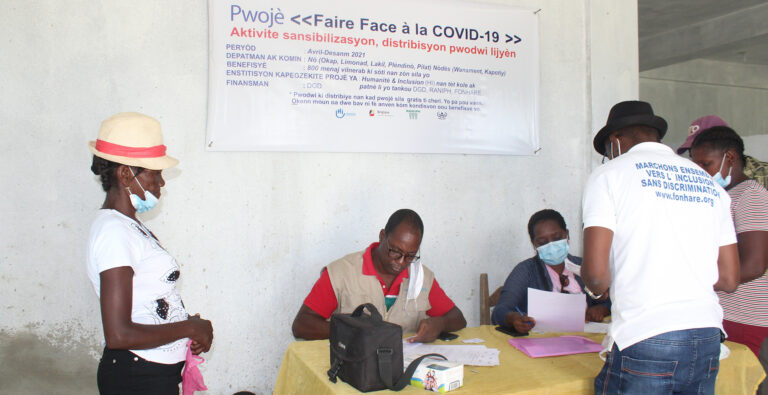
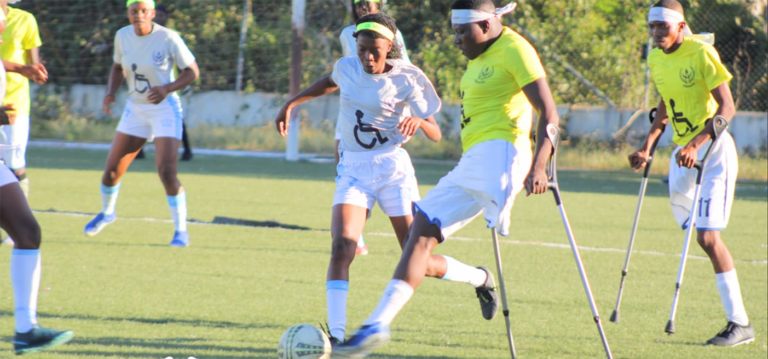
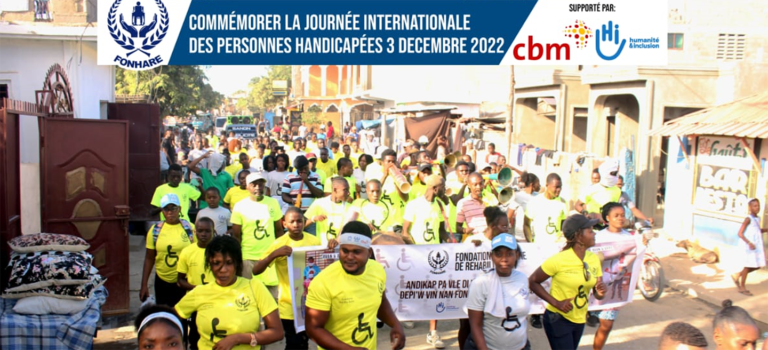
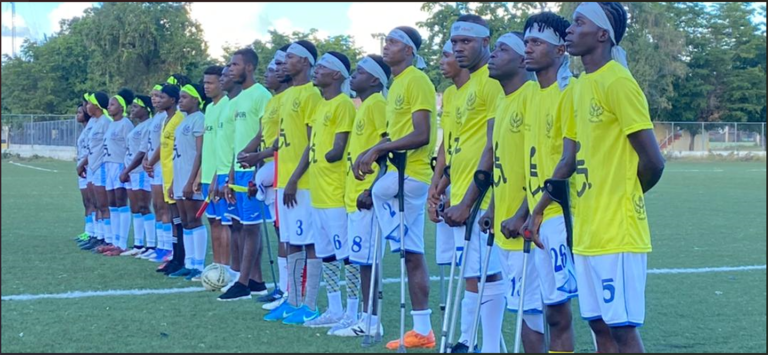
Dr Ivens explains: “If I come and I just bring food and urgent items, I will just relieve their hunger for a short time, but they are not prepared to overcome the next hurricane […] One must prepare them economically, so that their house will be stronger, and they will have more personal funding to overcome and be prepared for the next disaster.”
